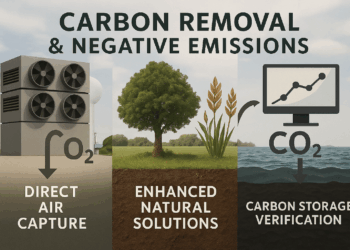A new study highlights the alarming threat climate change poses to global food production, with scientists warning of significant disruptions to crop yields and food security. The research underscores how rising temperatures, erratic weather patterns, and increased frequency of extreme weather events could destabilize agricultural systems worldwide, exacerbating hunger and inequality.
An Emerging Threat
The study, conducted by an international team of researchers, analyzed climate models and agricultural data to assess the potential impacts of climate change on key crops, including wheat, rice, maize, and soybeans. These staples form the backbone of global food systems and are essential for feeding billions of people.
The findings reveal that even a moderate increase in global temperatures could lead to substantial declines in crop yields. For instance, maize production could decrease by up to 20% in some regions by 2050, while rice and wheat yields could also experience significant reductions.
Lead author Dr. Maria Gonzalez from the International Food Policy Research Institute emphasized the urgency of addressing these challenges. “Our study shows that climate change is not a distant threat—it is already affecting agricultural productivity in many parts of the world. Without immediate action, the consequences for global food security could be devastating,” she said.
Regional Disparities
The study highlights that the impacts of climate change on food production will not be evenly distributed. Developing countries, particularly in Africa, South Asia, and parts of Latin America, are expected to bear the brunt of the crisis. These regions are already vulnerable to food insecurity and have limited resources to adapt to changing conditions.
In contrast, some temperate regions may experience temporary benefits, such as longer growing seasons. However, these gains are unlikely to offset the losses in more vulnerable areas.
“Climate change is amplifying existing inequalities,” said Dr. Gonzalez. “Regions that are already struggling with food insecurity will face the greatest challenges, thereby further widening the gap between the global north and south.”
Extreme Weather and Pests
The study also highlights how extreme weather events, such as droughts, floods, and heatwaves, are becoming more frequent and severe due to climate change. These events can devastate crops, disrupt planting and harvesting cycles, and reduce overall agricultural productivity.
Additionally, rising temperatures are creating favorable conditions for pests and diseases that threaten crops. For example, the spread of locust swarms in East Africa in recent years has been linked to unusual weather patterns driven by climate change.
Solutions and Adaptation
Despite the grim outlook, researchers stress that there are solutions to mitigate the impacts of climate change on food production. These include investing in climate-resilient crops, adopting sustainable farming practices, and improving global food distribution systems to reduce waste and ensure equitable access.
Dr. Gonzalez called for urgent international cooperation to address the crisis. “We need coordinated efforts to reduce greenhouse gas emissions and support farmers in adapting to changing conditions. Time is running out, but we still have the tools to make a difference.”
The study serves as a stark reminder of the interconnectedness of climate and food systems. As global temperatures continue to rise, the need for bold action to secure the world’s food supply has never been more critical.








